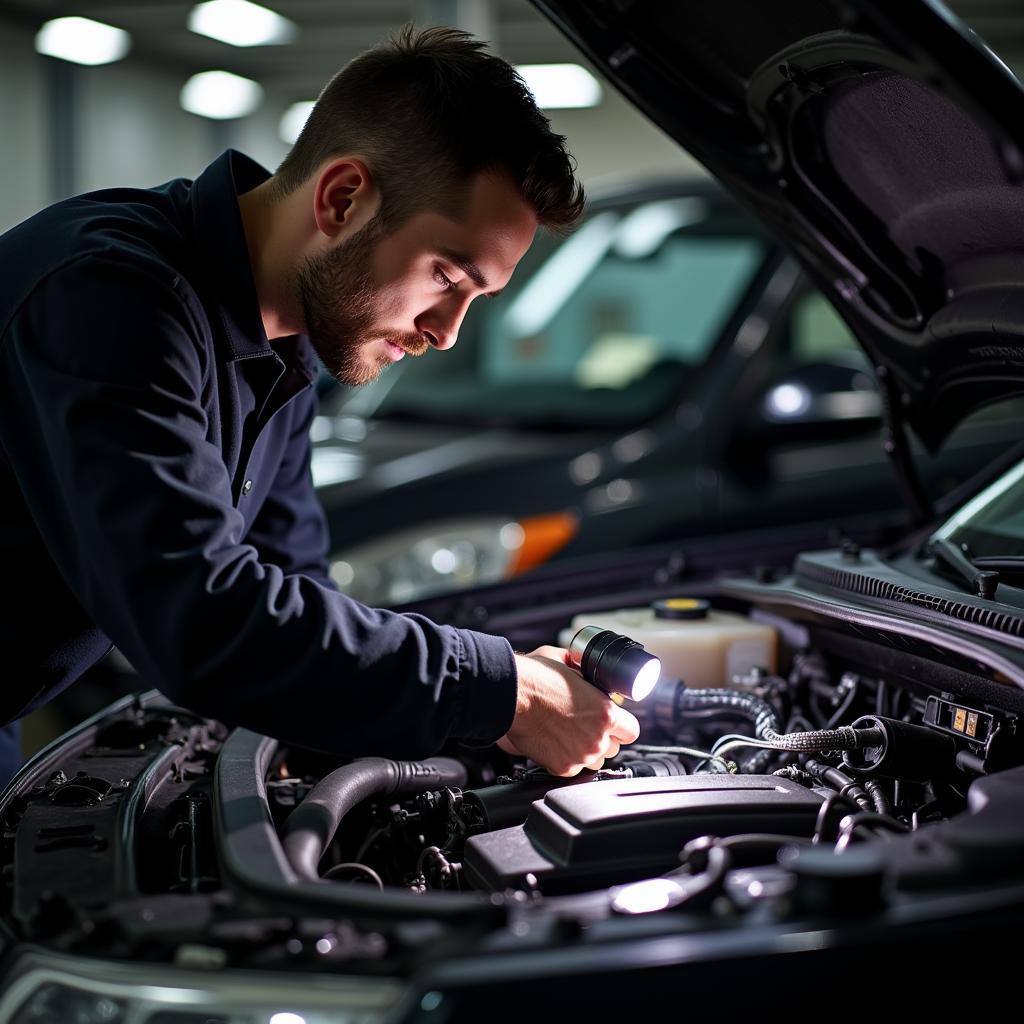Frustrating problems with cars are an inevitable part of vehicle ownership. Whether it’s a mysterious check engine light, a persistent squeak, or a sudden breakdown, these issues can leave you stranded, stressed, and out of pocket. This comprehensive guide will dive into some of the most common automotive headaches, providing practical advice for troubleshooting and solutions to get you back on the road.
Understanding Common Car Problems
Car trouble can range from minor inconveniences to major malfunctions. A thorough understanding of these issues is the first step towards effective troubleshooting. Let’s explore some of the most common frustrating problems with cars:
Electrical System Issues
- Dead Battery: A dead battery is a classic car problem, often indicated by a clicking sound when you turn the key. This can be caused by leaving lights on, extreme temperatures, or a failing alternator.
- Malfunctioning Alternator: The alternator is responsible for charging the battery while the engine is running. A faulty alternator can lead to a dead battery or dim headlights.
- Electrical Shorts: Shorts in the wiring can cause a variety of problems, from blown fuses to complete electrical system failure. Identifying and repairing shorts can be complex and often requires professional help.
- Faulty Sensors: Modern cars rely on numerous sensors to monitor various systems. A faulty sensor can trigger warning lights and affect performance.
Mechanical Problems
- Brake Issues: Problems with brakes, such as squeaking, grinding, or a soft brake pedal, can be serious safety concerns and should be addressed immediately.
- Engine Trouble: Issues like misfiring, overheating, or loss of power can indicate serious engine problems that require professional diagnosis and repair.
- Transmission Problems: Slipping gears, rough shifting, or inability to shift can signal transmission issues, which can be costly to repair.
- Suspension Problems: A bumpy ride, uneven tire wear, or noises when going over bumps can indicate problems with the suspension system.
Troubleshooting Frustrating Problems With Cars: A Step-by-Step Approach
While some car problems require professional attention, others can be diagnosed and even fixed with some basic troubleshooting steps.
- Check the Obvious: Before panicking, check the simple things. Is the gas cap tight? Are the tires properly inflated? Are all the fluids topped off?
- Consult the Owner’s Manual: Your owner’s manual is a valuable resource for understanding your car’s specific systems and troubleshooting common problems.
- Use a Diagnostic Tool: An OBD-II scanner can read diagnostic trouble codes (DTCs) stored in your car’s computer, providing valuable clues about the source of the problem.
- Perform a Visual Inspection: Look for any obvious signs of damage, leaks, or loose connections.
- Test and Isolate: Try to isolate the problem by testing different components or systems. For example, if your headlights are dim, check the battery, alternator, and wiring.
 Mechanic Checking Car Engine
Mechanic Checking Car Engine
“Regular maintenance is the key to preventing many frustrating problems with cars,” advises John Smith, ASE Certified Master Technician. “Simple tasks like oil changes, tire rotations, and brake inspections can save you a lot of headaches down the road.”
When to Seek Professional Help
While DIY troubleshooting can be helpful, some car problems require the expertise of a qualified mechanic. If you are unsure about the cause of a problem or if the problem is complex, it’s always best to seek professional help.
“Don’t hesitate to call a trusted mechanic if you encounter a problem you can’t diagnose or fix yourself,” recommends Sarah Jones, Automotive Engineer. “Trying to fix complex issues without proper knowledge and tools can often worsen the problem and lead to more expensive repairs.”
Conclusion: Conquering Frustrating Problems With Cars
Frustrating problems with cars are a reality of car ownership, but with the right knowledge and approach, you can minimize their impact. By understanding common car problems, utilizing basic troubleshooting techniques, and knowing when to seek professional help, you can keep your car running smoothly and avoid unnecessary stress and expense. For further assistance or expert advice, connect with AutoTipPro at +1 (641) 206-8880 or visit our office at 500 N St Mary’s St, San Antonio, TX 78205, United States.
FAQ
- What is the most common cause of a dead battery? Leaving lights on or a failing alternator are common culprits.
- How often should I get my oil changed? Refer to your owner’s manual for recommended oil change intervals.
- What does a check engine light mean? It indicates a problem with the engine or emissions system. Use an OBD-II scanner to retrieve the specific diagnostic trouble code.
- How can I prevent brake problems? Regular brake inspections and maintenance are crucial.
- What should I do if my car overheats? Pull over safely and let the engine cool down. Check the coolant level and contact a mechanic.
- Why is my car making a strange noise? Numerous issues can cause unusual noises. A mechanic can help diagnose the source of the noise.
- How can I improve my car’s fuel efficiency? Ensure proper tire inflation, avoid aggressive driving, and keep up with regular maintenance.




Leave a Reply